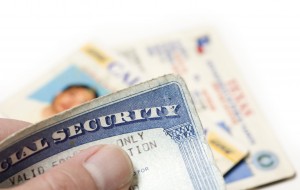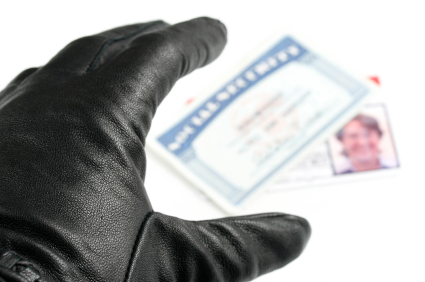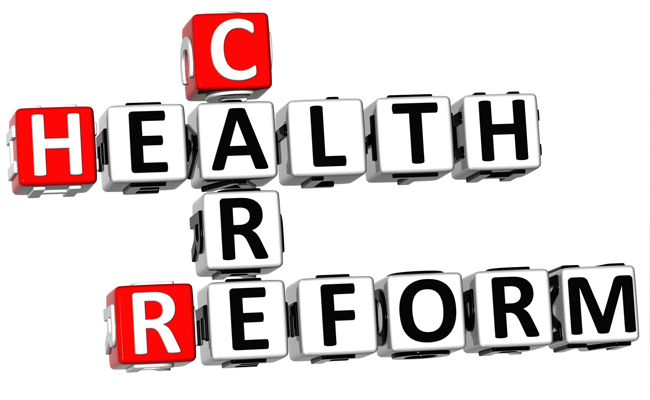Posts Tagged ‘Identity Theft’
Why You Need An ID Theft Recovery Plan—Not Just ID Protection
 Identity theft cases are growing at a staggering rate in the United States. While a lot more consumers are becoming aware of the risks and enlisting help via identity protection, most ignore the importance of having an ID theft recovery plan as well. The cost to recover your identity averages over $3,000 and could take as many as 600 hours. The entire process is tedious, time-consuming, frustrating, and could easily bankrupt you if you already have a dire financial situation.
Identity theft cases are growing at a staggering rate in the United States. While a lot more consumers are becoming aware of the risks and enlisting help via identity protection, most ignore the importance of having an ID theft recovery plan as well. The cost to recover your identity averages over $3,000 and could take as many as 600 hours. The entire process is tedious, time-consuming, frustrating, and could easily bankrupt you if you already have a dire financial situation.
But recovering from identity theft doesn’t have to be so devastating. In conjunction with identity protection, identity theft recovery services help keep your life in order when you become a victim of identity theft.
How ID Theft Recovery Services Can Help
Identity theft recovery companies are experts at handling the loss of your information. They track down the point of origin to help you discover what credit accounts are fraudulent. Then they go to work helping you restore your credit profile. They handle your recovery from multiple types of identity theft, including:
- Medical identity theft
- Data breaches
- Bank and/or credit card identity theft
- Government identity theft (e.g., Social Security fraud, Medicare fraud, etc.)
- Employment identity theft
- Phone and/or utilities identity theft
- Every other type of identity theft you can imagine—and there are many!
Steps An ID Theft Recovery Service Takes
Identity recovery requires experts, such as law enforcement professionals, who understand the complicated process of ID theft recovery. While the steps they take depend on the extent of your identity theft case, some services include:
- An expert who resolves all inaccurate information that appears on your credit report and/or medical records due to fraudulent activity.
- A professional who contacts financial institutions and other credit providers, and then closes down those accounts to ensure no further charges occur.
- Helping you file a police report as well as a report with other government agencies to thoroughly document the fraud.
- Cleaning up any fraudulent tax returns that may have been filed on your behalf, and working closely with the IRS as well as your state tax commission to correct those errors.
While identity protection is your first line of defense against ID theft, when identity theft does happen, having a respected ID theft recovery plan is place is critical. ID360 provides identity theft recovery services that give you peace of mind. From negotiating with creditors, obtaining your credit reports, dealing with your bank, filing FTC reports, and assisting with correcting your medical records, the company ensures that you are able to return to the good credit you had before the identity theft occurred.
Get more identity theft protection and recovery advice from the experts at The Identity Advocate by visiting www.TheIdentityAdvocate.com or calling 310.831.4400.
Identity Theft and Medical Identity Theft: Why and How You’re at Risk
 Identity theft, including medical identity theft, is a growing threat in the United States. Unfortunately, too many consumers, healthcare providers, and businesses of all types and sizes ignore this threat.
Identity theft, including medical identity theft, is a growing threat in the United States. Unfortunately, too many consumers, healthcare providers, and businesses of all types and sizes ignore this threat.
The latest statistics still show that one out of four consumers have their identity stolen, equating to about 11.6 million identity theft victims a year. It’s also estimated that some sort of data breach will affect one out of ten consumers, and one out of eight patients will become a victim of medical identity theft.
The cost of identity theft is devastating. Hackers and thieves buy Social Security numbers for just $1.00, but you’ll spend thousands of dollars and countless hours recovering your identity. On the other hand, a person’s medical identity averages just $50, but insurance companies and the patients affected could spend millions in recovery costs.
All It Takes is the Right Data
Identity thieves only need a few key items to steal an identity. A Social Security number, name, date of birth, and a driver’s license number can reveal everything a thief needs. Thanks to the Internet, identity thieves can go to work doing reverse lookups and other searches using the limited information they find, and then gather the other data they need to steal your identity.
Thieves have several outlets at their disposal to steal identities, including:
- Dumpster diving (or your own trash cans)
- Stealing mail
- Check washing
- Stealing wallets and purses
- Performing telephone and email scams
- Obtaining death records
It’s Not Just Professionals
Identity theft is not just perpetrated by professional thieves. In fact, relatives and friends of victims—and even healthcare workers—steal identities every day. Cyber thieves are the most common in data breaches and system hacks.
Everyone is at Risk for Identity Theft
While the elderly are common targets of identity theft, they’re certainly not the only people at risk. Elderly individuals are, however, at higher risk because most are not computer savvy, do not know how to check their credit reports, and are more trusting, which means they’re more likely to fall victim to scams.
The second most vulnerable group is children. Children have clean credit slates and most parents are not proactive at monitoring their child’s credit report. Parents can, however, sign up their children for CreditKarma.com to keep an eye on their credit profile. Also, parents should teach their children to never share personal information (including dates of birth and Social Security numbers) with people they don’t know.
The deceased are also at risk for identity theft. Sadly, thieves look for obituaries to find the information they need to steal the deceased person’s identity. Since most family members do not check the credit of their deceased loved ones, it can be years before the identity theft is ever noticed.
Veterans are also at risk. Because they leave the United States for extended periods, serving their country, thieves take advantage of the fact that they’re unlikely going to check their credit report.
Lastly, people who use social media unwisely are at risk for identity theft. This is because they publicly broadcast their personal information and leave it ripe for the taking by identity thieves.
Medical Identity Theft Cases Are on the Rise
While identity theft is a common occurrence, medical identity theft is growing quickly as well. It’s estimated that 5.8 percent of identity theft cases are medical identity theft crimes—and most arise from medical data breaches. But medical identity theft is also dangerous. It can result in not receiving the right type of treatment due to incorrect medical records, which can lead to adverse reactions and, worse, death.
Preventing Identity Theft
There are many steps you can take to protect yourself from identity theft. While there isn’t a 100 percent effective method to prevent it, these steps are proven to limit the likelihood of your identity being stolen in the future.
- Become a member of ID360, the only identity theft protection company that’s run by law enforcement and recovers your identity after it’s stolen.
- Shred everything that has your name, address, and personal information on it (including junk mail).
- Place a fraud alert with credit bureaus so that they scrutinize new credit accounts.
- Use a gel pen so that your checks and signatures cannot be washed.
- Never put your Social Security number on documents and do not carry your Social Security card with you.
- Review your credit reports annually and look for any unauthorized applications or accounts.
You must take your prevention steps even further to prevent medical identity theft:
- Always check your explanation of benefit documents you receive in the mail, and make sure the services you are charged for were actually received.
- Request and review an annual “benefits paid” statement from your insurance company.
- Keep copies of your own health records for reference.
- Never share your insurance card with anyone.
- Shred medical documents when they are no longer relevant.
- Do not take advantage of free medical care or surveys.
- Report a stolen insurance card immediately.
- Never throw away prescriptions with your name on it.
What to Do When Your Identity is Stolen
There are things you can do to lessen the impact identity theft and medical identity theft have on your life:
- Call 877-ID-Theft and speak to the FTC immediately.
- Call your local police department and file an official report.
- Put a fraud alert on your credit report with all three credit bureaus, and then freeze your credit so it can no longer be used.
- Get copies of all three credit reports.
- Cancel all credit cards in your name.
- Contact your bank and give them copies of your official reports, and freeze your checking and savings accounts.
For more information about how you can prevent identity theft and medical identity theft from happening to you, visit The Identity Advocate. You’ll learn all of the ways you can protect your identity and how to recover it when it’s stolen. You can also contact the identity theft experts at The Identity Advocate by calling 310.831.4400.
Is Your Kid Safe? How to Prevent Child Identity Theft
 A child’s Social Security number and identity can be stolen just as easily as an adult’s. Thieves use their SSNs to open up bank accounts, apply for government benefits, and even rent a place to live. As a parent, it’s important that you are proactive in not only protecting your own identity, but the identity of your children, too.
A child’s Social Security number and identity can be stolen just as easily as an adult’s. Thieves use their SSNs to open up bank accounts, apply for government benefits, and even rent a place to live. As a parent, it’s important that you are proactive in not only protecting your own identity, but the identity of your children, too.
Recent research has shown that over 10.2 percent of children in the United States have had their identity stolen. Therefore, it is imperative that parents take precautions to protect their kids’ identities. Child identity theft results in:
- A poor credit score
- Higher interest rates and more difficulty being approved for loans/credit in the future
- Medical identity theft when medical records show they are using medications that identity thieves are actually taking
- Difficulty fixing errors, especially when they are years (or even decades) old
How to Spot Child Identity Theft
There are many ways to find out if your child’s identity has been stolen. If you notice these red flags, take action immediately. Some signs your child’s identity has been used fraudulently include, but are not limited to:
- Your child begins receiving pre-approved credit card notices or financial offers in the mail
- Your child already has a bank account open in his/her name
- A child’s application for a bank account is denied because of poor credit
- A credit report is already opened for your minor child
Risks For Child Identity Theft
Children are at high risk for identity theft because thieves thrive on the fact that most parents are not proactive at checking up on or protecting their child’s identity. Also, children are required to submit their Social Security number to physicians and even schools, which means there are multiple records with their personal information out there.
How to Prevent Identity Theft For Your Child
While there is no 100 percent guarantee you can protect your child’s identity, there are things you can do to limit the chances that they become a victim of identity theft in the future. Some things you can do to prevent child identity theft include:
- Sign up for an identity theft protection plan with a company like ID360, the only one that offers fully managed law enforcement grade recovery. ID360 will save you the extensive time and hassle it takes to contact the FTC, credit bureaus, banks, and other entities to begin the recovery process—leaving you free to live your life.
- Limit the availability of your child’s Social Security number. Be mindful of who asks for it, ask why it is being required, and how it is stored. For example, what happens to your child’s Social Security number after you provide it to a recreation center?
- Always keep your child’s personal documents safe, which includes prescription information, birth certificates, Social Security cards, and more.
- Check your child’s credit report annually to ensure that his or her Social Security number is not being used fraudulently.
- Be aware of family members and family friends who could steal your child’s identity. It sounds unconscionable, but there are countless examples of child identity theft occurring by people who are close to the family. For example, family members with poor credit history may see your child’s perfect credit as an easy way to get back on their feet.
To learn more about how you can avoid child identity theft, visit the identity theft prevention experts at The Identity Advocate. By taking steps to protect your child’s identity, you can ensure they have a long, healthy credit history.
Related Articles:
Fight Back! Stop Healthcare Fraud and Abuse From Happening to You!
You trust in your physician to take care of you. You trust them to prescribe medications, diagnose symptoms when you’re sick, and help you maintain a healthy lifestyle. But is your physician doing something else—something nefarious—that you don’t know about? He or she could be committing healthcare fraud—at your expense!
 Healthcare fraud and abuse is on the rise in the United States. From physicians billing for services you don’t receive to performing unnecessary procedures, healthcare fraud and abuse takes a serious toll on your health and insurance. While most physicians do it to pad their revenue, these false claims, medical orders, and prescriptions put your life at risk.
Healthcare fraud and abuse is on the rise in the United States. From physicians billing for services you don’t receive to performing unnecessary procedures, healthcare fraud and abuse takes a serious toll on your health and insurance. While most physicians do it to pad their revenue, these false claims, medical orders, and prescriptions put your life at risk.
Billing Schemes
Physician billing schemes are one of the most common types of healthcare fraud and abuse. He or she will bill your health insurance for services that were never provided and collect reimbursements for those services. This can occur in many ways, from a chiropractor billing your insurance for five visits when you only visited twice, to a physician charging you for expensive medications (like those used to treat kidney disease, cancer, or HIV) that you don’t need or didn’t receive.
Physicians have also been known to offer in-house CT machines and bill your insurance for scans that were never scheduled, let alone performed. Or a physician may perform a procedure to add a stent you don’t really need just to be able to bill your insurance and collect a claim. All of these extra charges and expensive services can impact both your insurance premiums and your health. The list of offenses goes on and on.
Upcoding For Higher Claim Amounts
Upcoding is another common form of healthcare fraud and abuse. This is a process where the physician charges for a higher service than what was actually performed. For example, you visit your physician for a routine office visit, which has its own code and reimbursement amount. However, your physician charges your insurance for an extended office visit, which costs more. According to recent statistics, making a simple code change like this could increase a physician’s revenue by $70,000. While his or income is increasing, yours is declining as you watch your insurance premiums steadily rise.
How to Fight Healthcare Fraud and Abuse
As frightening as all of this is, you can take steps to protect yourself:
- Review your billing statements and explanation of benefits (EOB) from your insurance provider. Verify that the charges made by your physician coincide with services, medications, and equipment you actually received. If you are confused, or feel you did not receive services, call the physician immediately!
- Annually request all treatment paid for by your insurance carrier. Compare them to your EOBs. If you find discrepancies, notify your carrier immediately.
- Request receipts when you pay at your physician’s office, as well as a receipt of all services performed.
- If you choose to pay cash for a service, watch for an EOB that the provider also charged your insurance provider.
Despite all you do to fight back against healthcare fraud and abuse, 10 to 30 percent of all medical patients fall victim. Get extra protection by hiring a fraud and abuse expert that specializes in safeguarding you from the consequences of these types of physician practices. Whatever you do, be proactive to prevent it from happening to you.
Make the Right Move
Consider signing up for an identity theft protection plan with a company like ID360, the only one managed by law enforcement that also restores your identity back to pre-theft status after it’s stolen. You can also discover helpful resources over at The Identity Advocate, and contact an experienced investigator to learn more about resolving healthcare fraud and identity theft. Fight back!
Related Articles:
How to Prevent Identity Theft During Your Job Search
 Online job searching has opened up a world of opportunities for job seekers. You can do everything from the comfort of home—from performing research to distributing resumes to submitting applications. Most companies prefer the online hiring process, too. It’s simply a more efficient way for both employers and employees to connect.
Online job searching has opened up a world of opportunities for job seekers. You can do everything from the comfort of home—from performing research to distributing resumes to submitting applications. Most companies prefer the online hiring process, too. It’s simply a more efficient way for both employers and employees to connect.
But job-hunting online also has its drawbacks, including a much higher risk for resume identity theft. Identity thieves know that many job seekers are desperate, and are willing to provide whatever information is requested to secure an interview. The result can be financial ruin for a job seeker who has done nothing wrong other than try to adhere to application requirements.
Thieves use a variety of tactics to commit resume identity theft:
- Collecting your personal information: Identity thieves will gather as much information from you as they can. If you use a job site that allows you to post your resume, you’re at risk for identity theft because anyone with a profile can access it. It just takes a keyword search and a quick look at your resume to collect your name, address, phone number, former employers, and any other personal data you’ve included.
- Fake job listings: Identity thieves also create fake job listings to gather job seekers’ personal information. They may even take it as far as to have an online interview with you. Before offering you the position, they will ask for some type of verification (such as a bank statement or utility bill). They then use this information to access your identity and their scam is off and running.
- Unemployment scams: These prey on people who are desperate to earn money while they’re out of work. They offer to help you file for unemployment, only to steal your Social Security number, date of birth, and other personal information to hijack your identity.
Protecting Yourself From Resume Identity Theft
Before you apply for a job, do a little research on the company to make sure it even exists. Does it have a website and/or a social media presence? How does the information on the website compare to the job description? Also, never give out your personal information to companies online—regardless of whether they say it’s necessary for the job. An employer should never need your Social Security number, driver’s license number, or other personal information before meeting with you in person. If you will be working remotely, you should at least have a phone interview and a signed job offer before sharing your information.
You leave yourself vulnerable to identity theft when you provide the following types of information on your resume or on a job application online:
- Social Security number
- Date of birth
- Gender
- Mother’s maiden name
- Marital status
- Driver’s license number
- The year you graduated school and the name of the school
- Professional license number
Tips for Safe Online Job Searching
Watch out for these resume identity theft red flags as you perform your job search:
- If an employer requests your Social Security number on an online job application, contact the company to ask why it needs this information just to process the application. Explain that you will provide it following the interview and a firm job offer.
- Contact the company directly from its website and/or verify its corporate phone number, and always make sure the person interviewing you actually works there.
- Look at the email address of the person requesting your information. If the domain name doesn’t match the company, it is unlikely that he/she works for the company.
Above all, be cautious and don’t be too quick to provide your personal information during an online job search. It can be a frustrating process already; the last thing you want to do is become yet another victim of resume identity theft. Remember that you should always be researching companies as much as they’re researching you.
We recommend that you be proactive and protect your identity before, during, and after a job search by signing-up with ID Theft Solutions, the only identity theft protection company that restores your identity back to pre-theft status when it’s stolen. You can also connect with us here at The Identity Advocate to learn more about protecting yourself and your family from identity theft.
Related Blog Posts:
Is Your Medical Device Putting You At Risk For Identity Theft?
 Many of us use medical devices to monitor a variety of health issues—everything from sleep apnea to heart conditions—to help keep us safe and sound. What many of us don’t realize is that these devices make us more vulnerable to medical identity theft and healthcare fraud.
Many of us use medical devices to monitor a variety of health issues—everything from sleep apnea to heart conditions—to help keep us safe and sound. What many of us don’t realize is that these devices make us more vulnerable to medical identity theft and healthcare fraud.
Unfortunately, unlike regular forms of identity theft, a medical data breach can have life-threatening consequences. Ironically, the same device that can save a life can also be used by an identity thief to put someone’s life at risk.
So while medical device technology continues to drive innovations in the healthcare industry, we need to be vigilant to prevent identity theft at every turn. Identity thieves are resourceful and just as innovative with their techniques—often striking before the industry has had time to catch up with new security measures.
Identity Thieves Have Their Eye on Healthcare
Personal information is the lifeblood of an identity thief, and nothing could be more personal than your medical information. After all, your medical records can contain even more sensitive information than your financial records, making them prime targets for identity thieves. In fact, while someone’s credit card records sell for about $2.00 on the black market, medical records sell for an average of $20.00. With these financial incentives, it’s no surprise that medical identity theft is on the rise, claiming 1.84 million victims in the U.S. in 2013.
The Risks of Medical Identity Theft
Medical identity theft occurs when thieves use your personal information and your health insurance to receive medical services. They may have prescriptions filled under your name or attempt to fraudulently bill your health insurance provider to receive a refund. And since they are impersonating you when they receive every medical procedure and prescription, this information is recorded on your own medical history. You’re on the hook both financially and medically, and the results can be disastrous.
Consider, for example, that you have an allergic reaction to a medication. Your allergy has been well-documented in your records so physicians know to avoid it. However, if you suddenly find yourself in a medical emergency and doctors are looking at someone else’s records, they may very well give you medication that could make a bad situation worse.
How Your Medical Devices Put You in Danger
Medical monitoring devices such as insulin pumps, implanted defibrillators, CPAP machines (used for sleep apnea), medical alert devices, and even baby monitors could put you at higher risk for medical identity theft. This is because these devices connect to hospital networks, home health networks, smartphones, wireless connections, and other sources. As they attempt to transmit over these connections, a skilled hacker can intercept the data and access a medical device—and any history or personal information associated with it.
What You Can Do to Protect Yourself
If you have a medical device, speak with the manufacturer and/or physician that issued it. Find out what measures they are taking to protect your medical information, and how they safeguard the networks that are connected to your device. What are their data encryption standards? What about password protection protocols? How do they respond to a data breach? If they can’t answer these questions, you should consider switching companies and/or doctors.
With threats only expected to grow as we see more advances in healthcare technology, it’s critical that you take a proactive approach to prevent your medical identity from being stolen. Consider signing up for an identity theft protection plan with a company like ID Theft Solutions, the only one managed by law enforcement that restores your identity back to pre-theft status.
As always, you can also connect with us here at The Identity Advocate to learn more about medical identity theft, and don’t forget to subscribe to our newsletter to have identity theft prevention tips delivered to your inbox every month.
Related Blog Posts:
Fake Tax Returns for Tax Refunds – US Dept. of Justice Stolen Identity Refund Fraud (SIRF) Enforcement
One of the Tax Division’s highest priorities is prosecuting people who use stolen identities to steal money from the United States Treasury by filing fake tax returns that claim tax refunds. Working to stop Stolen Identity Refund Fraud, or SIRF, is vital because these schemes threaten to disrupt the orderly administration of the income tax system for hundreds of thousands of law abiding taxpayers and to cost the United States Treasury billions of dollars.
SIRF crimes are complicated to prosecute because they are often perpetrated by large criminal enterprises with individuals at all stages of the scheme: those who steal the Social Security Numbers (SSN) and personal identifying information, those who file false returns with the Internal Revenue Service (IRS), those who facilitate obtaining the refunds, and the masterminds who promote the schemes. These criminal enterprises are able to exploit the speed and relative anonymity of highly automated systems for storing personal information, preparing and filing tax returns electronically, and generating income tax refunds quickly—often in the form of electronic payments.
Identities used in SIRF crimes may be stolen from anywhere. SIRF criminals have used social security numbers stolen from institutions such as hospitals, nursing homes, and public death lists, thereby exploiting some of the most vulnerable members of our communities—the elderly, the infirm, grieving families. However, everyone with a social security number is potentially vulnerable to having their identity stolen. According to the IRS, from 2008 through May of 2012, the Service has identified more than 550,000 taxpayers who have had their identities stolen for the purpose of claiming false refunds in their names.
Click here to read the entire article: http://www.justice.gov/tax/Stolen_Identity_Refund_Fraud.htm
The Tax Division has had considerable success in SIRF prosecutions, which have generated long sentences for those convicted of SIRF crimes. This page contains links to articles, websites, and press releases with information on how the Justice Department and IRS are dealing with SIRF crimes, guidance for citizens whose identities have been stolen and used to file false tax returns, and efforts of the Justice Department to prosecute these crimes – Kathryn Keneally, Assistant Attorney General for the Tax Division Press Release Announcing SIRF Enforcement Initiative
Connect with Linda at 310-831-4400 or at info@theidentityadvocate.com to mobilize your efforts of protection and recovery when it happens to you!
Are You At Risk For ObamaCare Identity Theft Scams?
 The Affordable Care Act has been in the news a lot lately—website failures, blunders, missed deadlines, just to name a few—but now a new trend is popping up with ObamaCare. Now there is an increased risk of identity theft to add to the list of issues with the new healthcare law. Navigators, the professionals who are supposed to help guide consumers into the right affordable healthcare plan, are proving to be the biggest identity theft threat of all.
The Affordable Care Act has been in the news a lot lately—website failures, blunders, missed deadlines, just to name a few—but now a new trend is popping up with ObamaCare. Now there is an increased risk of identity theft to add to the list of issues with the new healthcare law. Navigators, the professionals who are supposed to help guide consumers into the right affordable healthcare plan, are proving to be the biggest identity theft threat of all.
Identity Theft Threats Through ObamaCare
ObamaCare identity theft is a real concern, especially when you consider the lack of protective measures put in place. According to Health and Human Services Secretary Kathleen Sebelius, there is no federal requirement for navigators to undergo criminal background checks. Although a handful of states do require background checks, she acknowledged that it is possible for convicted felons to be navigators and gather consumers’ sensitive personal information. When you also consider that navigators only have to complete 20 to 30 hours of training—even though they’re essentially doing the same job as certified health insurance agents—there are obviously many reasons to worry.
But navigators aren’t the only risk here. The government databases used for ObamaCare store consumers’ personal, financial, and medical information—data that is shared with seven separate agencies including the IRS, Social Security Administration, and Department of Justice. These databases alone increase the likelihood of ObamaCare identity theft. With open enrollment through the health insurance exchanges running through March 2014, you will want to take the proper precautions to avoid becoming another victim of identity theft.
How to Protect Yourself from ObamaCare Identity Theft
As a consumer you have to be proactive to protect your identity. The elderly, disabled, and small business owners are at higher risk than other consumers for identity theft through ObamaCare, but you are at risk even if you don’t fall into these groups. Perform your due diligence and look out for the following:
- Never give out your personal information to anyone calling and representing themselves as government officials for ObamaCare. The government will never ask for your personal information—including your bank account or credit card information—to obtain insurance. You won’t be contacted via phone, email, text, or even at your door for anything related to the new healthcare law, so anyone telling you otherwise is probably participating in an ObamaCare identity theft scam. Legitimate navigators will not make unsolicited contact with you or ask you to pay a fee for their services.
- Watch out for fake ObamaCare or Medicare identification card scams. Identity thieves have been known to contact consumers claiming that they must have an ObamaCare identification card, but there are no such cards involved with the new healthcare law. Similarly, scammers are telling consumers that they need to verify their personal information to continue receiving their Medicare benefits. Again, not true.
- Avoid fraudulent or “dummy” websites. Creating websites that appear to be official is another favorite tactic of scammers. You can easily avoid this type of ObamaCare identity theft by only going to www.healthcare.gov, the official government healthcare site. From there you can trust links directing you to the official websites operated by individual state governments.
Whatever you do, never provide your personal information—including Social Security number, date of birth, and financial account numbers—to setup your new healthcare plan. Remember that the government already has your personal information, so no government representatives will ever ask you to provide it. If you are uncomfortable using the healthcare.gov website to sign-up, you can also call 1.800.318.2596 for personal assistance completing the application process.
For more tips to prevent ObamaCare identity theft scams—and every other form of identity theft—visit The Identity Advocate or call us at 310.831.4400. You can also get identity theft protection today with ID Theft Solutions, the only identity theft prevention and recovery firm we endorse. Your identity is always at risk, but with the right tools in your arsenal you can combat identity theft and keep your personal information safe.
4 Tips to Prevent Elderly Identity Theft
More than 12 million people had their identities stolen last year—a shocking statistic that continues to rise. While anyone can become a victim of identity theft, this crime especially impacts seniors who often have more wealth and have spent a lifetime developing good credit.
Elderly identity theft is common among seniors for many reasons. They are generally more trusting than younger adults, not as aware of identity theft risks and scams, and are also more likely to know the identity thief. They are prime identity theft targets online, over the phone, and even in their own homes since they’re less likely to suspect loved ones of the crime.
 Whether you’re a senior or a family member looking for ways to prevent elderly identity theft, there are many things you can do to stay protected. Let’s take a closer look at four tips to prevent identity thieves from claiming another senior victim.
Whether you’re a senior or a family member looking for ways to prevent elderly identity theft, there are many things you can do to stay protected. Let’s take a closer look at four tips to prevent identity thieves from claiming another senior victim.
1. Be Safe Online
Seniors who are typically less familiar with Internet security should avoid risky behavior online. This includes online banking and providing personal information in response to email spam. Encourage them to conduct all of their banking in person and ignore emails from people they don’t know. It is also a good idea to install security software on their computer to help prevent hackers from accessing their private information.
2. Freeze Credit
You should also implement a credit freeze. Freezing credit is easy to do and it’s an effective way to avoid elderly identity theft. To freeze a loved one’s credit you will need to contact the three credit agencies (TransUnion, Equifax, and Experian) and request a freeze. You will be required to provide the full name, address, Social Security number, a copy of a government-issued ID, and a copy of a bank statement, insurance statement, or utility bill. The freeze won’t allow any new credit accounts—including loans, bank accounts, and rental agreements—to open unless you give the credit bureau the permission and the password to unfreeze the account.
3. Stop Junk Mail
It’s easy to ignore junk mail, but many of us forget how much personal information it can contain. You can help your elderly loved one opt-out of receiving junk mail by following the instructions on www.OptOutPreScreen.com or by calling 1-888-567-8688. This eliminates or at least significantly reduces junk mail such as pre-approved credit card offers that provide opportunities for identity thieves. To prevent elderly identity theft you also want to make sure you shred all promotional mail that includes personally identifying information. Remember that simply tossing this type of mail in the trash makes it easier for dumpster divers to steal your loved one’s identity.
4. Keep Private Information Private
 Credit cards, Medicare cards, and Social Security numbers are among the most sought after sources of information identity thieves use to commit elderly identity theft. Seniors should keep information such as Medicare statements in a safe or safe deposit box, and shred them after confirmed treatments. They should never carry their Social Security card with them and carry their Medicare card only to doctor visits.
Credit cards, Medicare cards, and Social Security numbers are among the most sought after sources of information identity thieves use to commit elderly identity theft. Seniors should keep information such as Medicare statements in a safe or safe deposit box, and shred them after confirmed treatments. They should never carry their Social Security card with them and carry their Medicare card only to doctor visits.
Identity thieves regularly take advantage of the fear many seniors have about their Social Security benefits and Medicare coverage. A trusting senior may assume that the person at the door, on the other end of the phone line, or in an email are simply doing their job when they ask for their Medicare information. However, a common elderly identity theft scam is for a thief to call a senior and claim to be from the Medicare office. The thief asks for verification of the senior’s Medicare account number so that benefits can be paid, and then disappears with all of the information he needs to create a new identity. Make sure your loved one is aware that the Medicare office will never ask for this type of verification via phone, email, or in person.
Start Preventing Elderly Identity Theft
In addition to following these tips, you should also stay in regular contact with your elderly loved one to keep track of any suspicious behavior. There are also several ways to proactively stop identity theft. Sign-up with a prevention and recovery service such as ID Theft Solutions so the solutions for protecting your identity are all in one place. When your identity is compromised, you will have a personalized, one-to-one partner to take on the time-consuming recovery process on your behalf.
As always, you can rely on The Identity Advocate to keep bringing you tips to safeguard the identity of all of your family members. Learn more about preventing elderly identity theft, medical identity theft, social media identity theft, and all other forms of identity fraud by visiting www.TheIdentityAdvocate.com or by calling 310.831.4400.
How to Prevent Medical Identity Theft As Healthcare Reform Rolls-Out
 The launch of healthcare reform begins in October 2013 and has many people worried. Unfortunately, this concern isn’t just about the Affordable Care Act itself. Identity theft experts warn that the already high instances of medical identity theft are set to explode, especially as millions of Americans start looking for insurance options.
The launch of healthcare reform begins in October 2013 and has many people worried. Unfortunately, this concern isn’t just about the Affordable Care Act itself. Identity theft experts warn that the already high instances of medical identity theft are set to explode, especially as millions of Americans start looking for insurance options.
They have reasons to worry. Medical identity theft affected 1.85 million Americans this year at a cost of $41.3 billion, according to the Ponemon Institute. As the opportunities for medical identity thieves increase, many more Americans can expect to become targets. The Federal Trade Commission received over 83,000 fraud complaints in 2012 regarding “imposter scams,” in which identity thieves pose as representatives of government agencies to collect personal information. Officials expect these numbers to grow exponentially once the Affordable Care Act begins to roll-out.
The Threat of Healthcare Fraud and Medical Identity Theft
There is a lot of confusion regarding the Affordable Care Act. Signed into law in 2010, enrollment through the healthcare “exchange” begins on October 1, 2013 for coverage starting January 1, 2014. Consumer confusion about the implementation of the law has allowed identity thieves to get a jumpstart on stealing medical identities using information such as Social Security numbers, addresses, Medicare account information, medical history, and other private information.
Gaining access to this information enables identity thieves to fraudulently receive medical care, purchase prescription medications, order medical supplies, and submit false insurance claims—among other forms of healthcare fraud. Although anyone can be a target of medical identity theft, people with the highest risk of fraud include senior citizens, individuals who don’t speak English, and those who have never had insurance coverage or have experienced a lapse in coverage.
 One of the latest healthcare reform scams and medical identity theft occurs when a scammer contacts someone and tells him he’s been selected for early enrollment. The scammer poses as a federal employee and tells him that he must supply his personal and financial information, including bank account data, to receive his insurance card. What most consumers are unaware of is that there are no insurance plans or cards directly associated with the Affordable Care Act. Insurance companies, not the federal government, provide these cards, so beware of anyone who asks for this information.
One of the latest healthcare reform scams and medical identity theft occurs when a scammer contacts someone and tells him he’s been selected for early enrollment. The scammer poses as a federal employee and tells him that he must supply his personal and financial information, including bank account data, to receive his insurance card. What most consumers are unaware of is that there are no insurance plans or cards directly associated with the Affordable Care Act. Insurance companies, not the federal government, provide these cards, so beware of anyone who asks for this information.
Preventing Medical Identity Theft
Although some medical identity theft is inevitable with the Affordable Care Act, there are ways you can protect yourself and limit the chances of becoming an identity theft victim:
- Be proactive to prevent medical identity theft by signing up for an identity theft protection service such as ID Theft Solutions.
- Never provide or verify personal information over the phone, even if the caller claims to be a federal employee. Federal agencies already have this information on file, so you will never be called to supply it.
- Don’t automatically believe a caller ID screen indicating that a state or federal government agency is calling. Scammers have the latest technology and can display a government agency’s name on your caller ID.
- The government does not send unsolicited emails to request personal information. It only sends correspondence through U.S. mail. You can check the authenticity of a letter by looking up the agency’s phone number yourself and calling it for verification.
- Government employees do not make house calls, nor will they show up at your door requesting information or selling Affordable Care Act-related healthcare plans. Again, legitimate federal employees would already have your information on file.
The best way to prevent medical identity theft as healthcare reform goes into effect is to be aware of the warning signs, stay vigilant, ask plenty of questions, and never hand over your personal information. You can also take advantage of the tools, resources, and advice to avoid medical identity theft by visiting the experts at The Identity Advocate at www.TheIdentityAdvocate.com or by calling 310.831.4400.




